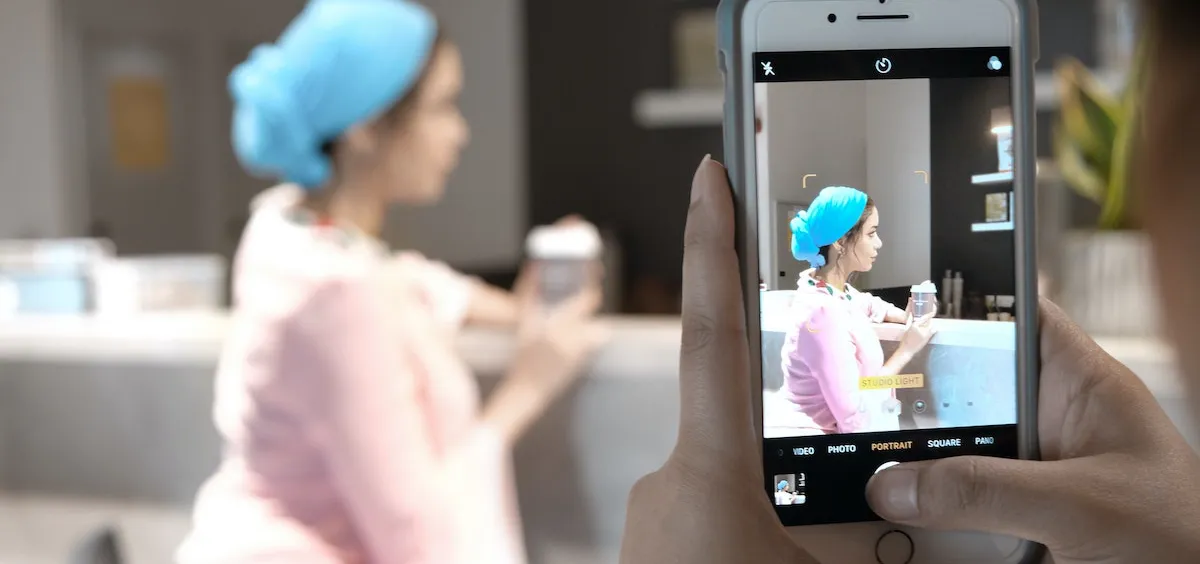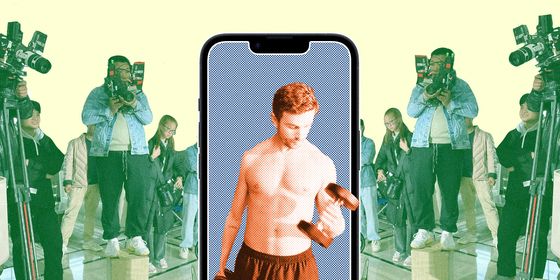A surge in “portrait mode” dramas is redefining how video platforms present their content
Take a look at how you are holding your phone: vertically or horizontally? Studies show that most people hold their phones vertically 94 percent of the time, and mobile content creators are beginning to take note.
“Vertical video drama,” or shupingju (竖屏剧), are a genre of video content shot in portrait mode specifically for phones and tablets. They cover a diverse range of genres, from romance to campus and career shows to costume drama, and are typically made up of information-rich, bite-sized episodes running just one to five minutes each. Split screens, quick cuts, cliffhangers, and the rapid delivery of plot points and punchlines help capture the fragmented attention of mobile audiences.
Content providers are scrambling to compete in this fresh field. iQiYi, an online entertainment service dubbed the “Netflix of China,” first dipped its toes into vertical drama with slice-of-life sitcom Ugh! Life, which premiered in November 2018. The hashtag of the 48-episode comedy series (#生活对我下手了#) has drawn 210 million views on Weibo at the time of writing, and the show is credited with making vertical dramas go viral.
Shooting in portrait mode has also required platforms to come up with new content suited to the new format. In-house “IP,” sketch comedy, and adaptations of popular web novels tend to be preferred over episodic dramas. Tongling Fei (《通灵妃》), a vertical drama viewed more than 300 million times on Tencent Video, was produced based on the platform’s proprietary animation IP of the same name.
Livestreaming platforms are also jostling for a share of the vertical playing field. Rivals Douyin (TikTok) and Kuaishou, which already dominate the portrait format in short videos and livestreams, respectively, have expanded the maximum run-time of their videos to 15 minutes, as compared to 15 seconds previously. Stars of both platforms have been making the jump to portrait drama: Xiannü Yueye, a content creator on Kuaishou with over 5.2 million followers, premiered her original romance-based scripted videos last August, growing from a mere 468,000 clicks per episode in the beginning to over 900,000 clicks.
“The vertical video will soon go mainstream, changing from grassroot-defined content to the professional level,” Gong Yu, CEO of iQiYi, predicted at the company’s annual conference in Shanghai.
Indeed, shupingju have been transitioning from amateur productions shot on smart phones to mind-blowing content made with professional video equipment and crew, trimmed to fit the vertical format—though they are still more cost-effective than traditional TV and web series. One producer estimated to Sina Entertainment that a 30-episode shupingju takes a month to create with a daily budget of 2,000 RMB and around 20 to 30 crew members in total. Recruitment site Boss Zhipin advertises jobs for vertical video scriptwriters in Beijing with an average salary of over 8,000 RMB per month.
Not all are embracing the new format, though. The narrow visual field of portrait-mode videos constrains the number of actors and objects that can appear in the scene. In Ugh! Life, almost all scenes are confined to just two objects. Ads are also difficult to place within the short run-time.
Split screen and other techiques for cramming in the content also make these short videos more labor intensive to edit, meaning not all content creators have the skills or resources available to piece them together. The format may also simply take some getting used to for new audiences. “I think it is more natural to watch video being presented in a landscape orientation, which is how our eyes normally see,” Wang Yan, a student from Hebei province, told TWOC after trying out—and giving up—shupingju.
“Shupingju don’t require much in terms of costume, lighting, and sets, but how to tell a good story on the vertical screen is still a challenge for us,” producer Ding Haibing told online magazine Guangdian Dujia. Though Ding’s shupingju, New Year Greetings, racked up 30 million views within 27 days of premiering on Tencent Video, he doesn’t believe that the new format will become the norm in the short run.
Instead, their recent surge may simply be a byproduct of the Covid-19 outbreak, which has decimated the traditional film and TV industry. Their low budget, and the fact that they can be watched from home, have made made shupingju an attractive band-aid , but vertical dramas cannot replace traditional entertainment, Ding believes. “If short videos are like fast food, then a long drama is a leisurely feast. Consumers want both.”
Cover Image by Pexels













